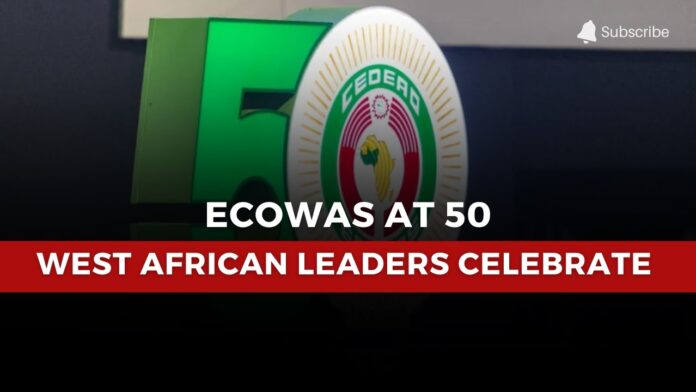President Bola Ahmed Tinubu returned to the National Institute for International Affairs in Lagos last week to lead the 50th anniversary celebration of the Economic Community of West African States (ECOWAS). The location is symbolic, as it was the birthplace of the organisation when it was founded on May 28, 1975, through the Treaty of Lagos. The goal then was clear—regional integration, economic cooperation, and peace among West African nations.
However, five decades later, ECOWAS is facing some of its biggest challenges yet. Political divisions have fractured member-states. Military takeovers have swept through the region, and key members have pulled out entirely. The bloc is no longer seen as a pillar of stability or unity, but as an organisation struggling to redefine its relevance.
During its strongest years, ECOWAS played a major role in regional peacekeeping through the ECOWAS Monitoring Group (ECOMOG), with Nigeria taking the lead in efforts to end civil wars in Liberia, Sierra Leone, and Côte d’Ivoire. Nigeria’s leadership was central, both financially and militarily. Today, Nigeria faces its battles—unable to fully secure its borders or protect its citizens from armed groups that include insurgents, terrorists, and separatists.
Critics argue that ECOWAS failed to build a sustainable governance framework. While the European Union serves as a model of integration and democratic standards, ECOWAS has struggled to maintain consistent values. Instead, many West African leaders have aligned with foreign powers, losing internal legitimacy. This shift partly led to the rise of military governments in Guinea, Mali, Chad, Niger, Burkina Faso, and Gabon.
A controversial turning point came under Tinubu’s leadership when ECOWAS nearly intervened militarily in Niger following the ousting of President Mohammed Bazoum. Although the plan was dropped, the move deepened distrust. Niger, Mali, and Burkina Faso eventually exited ECOWAS to form a new bloc, the Association of Sahel States (AES), further weakening the organisation.
The current state of ECOWAS reflects a decline from its original mission. Weak leadership, ignored protocols, and unresolved conflicts have pushed it far from the ambitious goals of 1975. As the region faces rising insecurity and economic instability, many believe ECOWAS must rethink its strategy.
There are renewed calls for unity and action. Observers say that to remain relevant, ECOWAS must focus on real economic integration, remove terrorist threats across its member states, and work toward a common currency. While its golden jubilee is a time for reflection, it is also a critical moment to rebuild trust and take concrete steps toward African unity.

